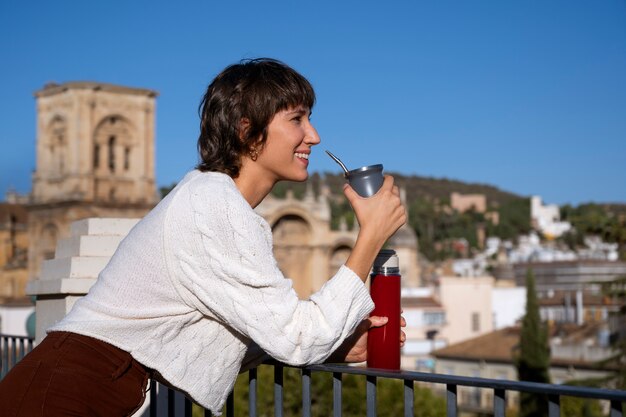Fascinating Facts about Albania

Albania is known for its stunning coastal landscapes.
Albania is home to the vibrant capital city, Tirana.
Albanians are renowned for their warm hospitality and friendliness.
Albania is rich in archaeological sites, showcasing its rich history.
The Albanian language is one of the oldest living languages in the world.
Albania has a unique blend of Ottoman, Byzantine, and Italian architectural influences.
Albanian cuisine features a variety of delicious and hearty dishes, such as byrek and fërgesë.
Albania has a rich cultural heritage, with traditional music and dance playing a significant role.
Albanians celebrate their independence on November 28th each year.
Albania is home to the stunning Albanian Alps, offering breathtaking hiking trails.
Albanians have a deep respect for their natural surroundings and prioritize environmental conservation.
Albania offers a unique blend of mountainous terrains, pristine beaches, and historic cities.
Albania has a diverse wildlife population, including rare species such as the Balkan lynx.
The National Museum of History in Tirana houses an extensive collection showcasing Albania’s past.
Albanian folklore is filled with mythical creatures and stories, captivating both locals and visitors.
The Albanian Riviera is a popular tourist destination, with its crystal-clear waters and vibrant nightlife.
Albanians are known for their strong coffee culture, enjoying a cup of espresso with friends and family.
Fascinating Facts about Albania part 2
The city of Berat, known as the City of a Thousand Windows, is a UNESCO World Heritage site.
Albania has a Mediterranean climate, with long, hot summers and mild winters.
Tirana is a vibrant city with colorful buildings, trendy cafes, and bustling markets.
The ancient city of Butrint, a UNESCO World Heritage site, is a must-visit archaeological site in Albania.
Albanians have a long history of religious tolerance, with a mix of Islam, Christianity, and other faiths.
The beautiful Blue Eye spring is a natural wonder found in southern Albania.
Albanians love their festivals, with events such as the Tirana International Film Festival attracting international attention.
The Albanian flag features a double-headed eagle, symbolizing the bravery and determination of the people.
Gjirokastër, another UNESCO World Heritage site, is known for its well-preserved Ottoman architecture.
Albanian artists, such as Ismail Kadare and Anri Sala, have gained international recognition in the art world.
The Albanian language has its roots in Illyrian, an ancient Indo-European language.
Albania has a rich tradition of craftsmanship, with artisans creating intricate embroidery and woodwork.
Albanians take pride in their national dance, known as valle, which is often performed at celebrations.
The Apollonia archaeological site in Albania was once a bustling Greek colony.
Albania has a vibrant film industry, producing critically acclaimed movies that have gained international recognition.
The Albanian education system has undergone significant improvements in recent years, with a focus on quality education for all.
Albanians have a strong bond with their families, with multigenerational households still prevalent.
The ancient city of Shkodër is home to Rozafa Castle, offering stunning panoramic views of the surrounding area.
Albanians celebrate spring with the traditional festival of Dita e Verës (Summer Day), a joyous celebration of nature and rebirth.
Albanian folklore is rich in legends and tales, often featuring heroic figures and mythical creatures.
The Albanian coast is a popular destination for water sports enthusiasts, offering activities such as snorkeling, scuba diving, and windsurfing.
Albania has a growing wine industry, with vineyards producing a variety of flavorful wines.
Traditional Albanian clothing, such as the qeleshe (a felt hat) and fustanella (a skirt-like garment), showcase the country’s unique cultural heritage.
Albanians have a love for traditional folk music, with instruments such as the çifteli and lahuta playing a central role in performances.
The town of Kruja is famous for being the hometown of the national hero Skanderbeg, who led a resistance against the Ottoman Empire.
Albanian literature has a rich tradition, with notable authors such as Eqrem Çabej and Dritëro Agolli.
The Albanian currency is the lek, named after the national emblem, the Albanian word for eagle.
Albania has a growing tourism industry, attracting visitors with its rich history, stunning landscapes, and warm hospitality.

